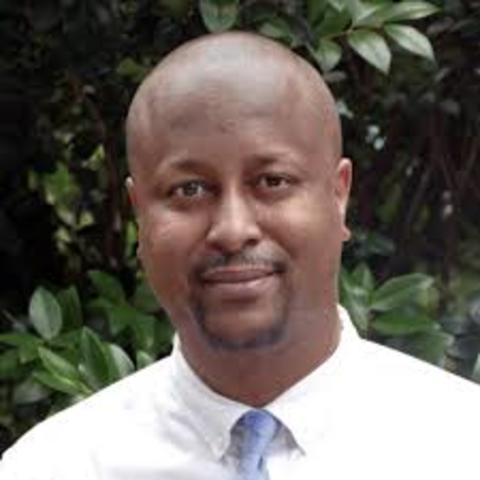
Section Branding
Header Content
Georgia lawmakers look to open jobs to more workers who need license to work
Primary Content

April Williams was eager to resume her nursing career when she applied this year with a Georgia agency for a license that is required for 30% of the American workforce.
After initially forgetting to provide her graduate school transcript, the Byron resident resubmitted her paperwork several other times. However, after several weeks of waiting, she was ready to vent her frustration before a panel of state lawmakers tasked with investigating issues within the Secretary of State’s Division of Professional Licensing Boards.
The Joint Blue Ribbon Committee Investigating Licensing Issues is expected to hold several meetings this year as it considers ways to reduce professional licensing glitches, costs and the amount of time it takes to process and review applications. Ideas include adopting more universal standards and making it easier to transfer licenses from other states and countries.
The old joke among people who advocate for better access to jobs in Georgia is you need a license to cut someone’s hair, but you don’t need one to build a house. Yet to be seen is if state lawmakers are ready to make it easier to get a state-licensed job.
The state division performs administrative and clerical work for 42 licensing boards covering dozens of professions, including architects, electrical contractors, cosmetologists, social workers and nurses. A number of other independent boards oversee the job certification for physicians, engineers and realtors and other professionals.
Williams said the licensing staff often takes too long to respond to her emails and voicemails and that she was told nobody was available in the Macon office to help her complete the application when she offered to visit several times recently.
Her plan now is to return to California to work under contract as a registered nurse until she finds out what happens to her Georgia license.
“I definitely agree the workers need to be back in the office because when you do get someone on the phone, you can tell they are not engaged. They are overworked. They’re not helpful. They’re not happy,” Williams said at the June 26 committee meeting held at Middle Georgia State University in Macon. “I have a family to feed. I have a mortgage to pay.”
Republican Rep. Matt Hatchett, who co-chairs the joint committee, says the most common complaint lawmakers like himself receive from the public is about the unreliable licensing analysts and call center employees they come in contact with while applying to become certified in a certain profession.
Professional licensing division director Gabriel Sterling said longstanding problems with understaffing and underfunding, outdated technology and laws, have contributed to the backlog of applications.
Sterling said that there’s been early success cutting down how long staff takes to respond to customer voicemails and emails, due in part to the voicemail system no longer having a limit of 100 messages.
A new online application system is being developed by the company to make the licensing and certification process easier. The system has so far cost $3 million, but additional funding is required as more occupations come online.
The licensing division will benefit from having a full-time director take over later this month, Sterling said. Sterling works in other roles for the secretary of state and became the public face of the elections division after Georgia’s 2020 presidential election.
A common misconception in the public is that the secretary of state dictates how professional boards operate, he said.
“We can’t tell a board to do anything,” Sterling said. “They are the issuer of the license and we’re there to provide the administrative support.”
Georgia’s growing workforce has contributed to an increase in occupational licenses distributed each year. There are currently 545,518 active licensees, an increase from about 440,000 in 2018, but the number of full-time employees has not increased to meet the demand.
Secretary of State Brad Raffensperger has praised lawmakers for increasing this year’s budget for the professional board division by $1.5 million, making it possible to hire more full-time employees.
Raffensperger, however, wants a larger share of the state budget allocated to the licensing, which generates about $30 million in fees each year but sees more than half of the revenue diverted to the state general fund.
Changes in licensing
Republican Sen. Rick Williams of Milledgeville, who has been a licensed funeral director for 51 years, said there’s a problem with some state boards that seem more intent on protecting their profession by creating more barriers for people trying to get a license.
A major change in occupational licensing laws came in December when the Georgia Supreme Court adopted a legal framework requiring that mandated state-approved certifications must have a compelling interest in protecting the public’s health, safety and welfare.
The court’s unanimous ruling sided with plaintiffs challenging a 2016 law that required maternal lactation consultants to be state-certified after completing multi-year coursework and testing programs offered by a private consultant board.
Sen. Larry Walker III, a Perry Republican, said the committee should look to simplify the licensing process to address workforce shortages in health care and other fields. Nursing applicants who also want to prescribe medicine sometimes have to spend more than a year waiting to be certified by a medical board that licenses physicians after already obtaining a license from a nursing board, he said.
“If they don’t have a compelling interest in those areas, I don’t think we ought to charge somebody a fee and require them to jump through all these hoops just to earn a living,” Walker said.
The Georgia Legislature has passed several licensing bills during the past two sessions, including allowing military veterans and their spouses to quickly obtain provisional licenses for jobs that they were previously certified to work in another state.
New state laws this year allow marriage and family therapists to get expedited licenses, while workers who only apply makeup and shampoo, blow-dry and braid hair no longer have to become licensed cosmetologists, who must complete hundreds of hours of training to provide more extensive haircare services.
A licensing task force put together by Secretary of State Brad Raffensperger has recommended permitting the licensing board directors to issue licenses if the board doesn’t respond within 60 days after an application is filed.
Criminal justice reform advocates and bipartisan lawmakers have been pushing to remove barriers for people with convictions on their record that are unrelated to the occupation they are seeking a work in.
This story comes to GPB through a reporting partnership with Georgia Recorder.

